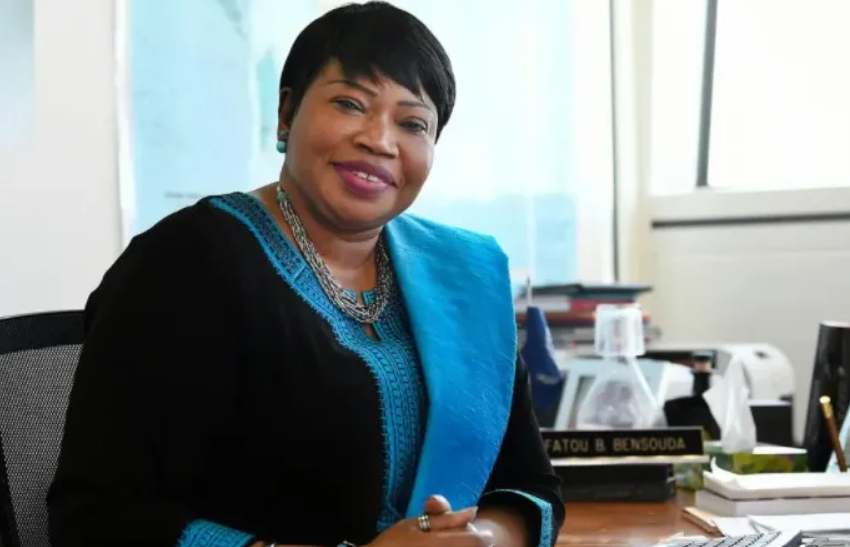
Former ICC chief Prosecutor Fatou Bensouda to lead probe into atrocities in Ethiopia
Source: Globe News Net
March 3, 2022
United Nation’s Human Rights Council on Wednesday appointed former International Criminal Court (ICC) Chief Prosecutor, Fatou Bensouda, to head the UN commission of enquiry into alleged human rights violations committed in the conflict in Ethiopia.
In a statement issued in Geneva, the President of the Human Rights Council, Federico Villegas of Argentina, announced the appointment of the Gambian former ICC Chief Prosecutor. The Council president also appointed Kaari Betty Murungi of Kenya and Steven Ratner of the United States to serve on the newly-created International Commission of Human Rights Experts on Ethiopia.
Fatou Bensouda was the ICC’s chief prosecutor from June 2012 to June 2021.
The international commission of enquiry on Ethiopia that she will lead was established for a period of one year. Its mandate is renewable if necessary, by a Human Rights Council resolution on 17 December.
Since its outbreak in November 2020, the war, which began in Tigray (northern Ethiopia) and then spread to the neighbouring regions of Amhara and Afar, has been marked by numerous allegations of human rights abuses.
The decision to create the commission came after a joint report by the UN rights office and Ethiopia’s Human Rights Commission (EHRC) last November determined that possible war crimes and crimes against humanity had been committed by all sides during the conflict.
The three UN-appointed experts are mandated to investigate and gather evidence on human rights violations committed since 3 November 2020 by all parties to the conflict in Ethiopia.
The investigators have also been tasked with establishing “the facts and circumstances surrounding the alleged violations and abuses, collect and preserve evidence, to identify those responsible, where possible, and to make such information accessible and usable in support of ongoing and future accountability efforts.”
The resolution establishing the commission was tabled by the European Union and adopted by 21 votes in favour out of 47 states in the Council, against 15 votes against (including China and many African countries) and 11 abstentions, during a special session of the Council.
The Commission will be required to provide an oral update on its work during the fiftieth session of the Human Rights Council in June 2022 and a written report at the following session in September.
Background of the war on Tigray:
The war began in November 2020 when Ethiopia’s army, backed by Eritrean and Somalia national armies and troops from Ethiopian regional states, moved to oust a TPLF-led regional government in Tigray after a long-standing political hostilities between Abiy’s ruling party and the TPLF.
The other dimension of the war was a genocidal campaign that has been brewing by elites from Amhara and Eritrean government, culminating in the November 2020 ‘war-of-annihilation’ on Tigrayans.
The more than 15-month-old war was marked by extreme brutality, including the use of rape and hunger as weapons of war, massacres and ethnic cleansing against Tigrayans. As a result, the conflict has left thousands dead and forced many others to flee their homes with hundreds of thousands driven to the brink of starvation, according to the United Nations.
Since June, Tigray has been put under a total humanitarian blockade by the Ethiopian government, with only less than 10 %of the needed essential aid allowed to enter the region and no aid reached the region since December 15, 2021. This has resulted in man-made famine to more than 900,000 people in the region and more than 5400 deaths as a result.
The World Health Organization on Tuesday called for “unfettered access” into war-wracked Tigray, saying its first delivery of life-saving medical supplies since July last year had stalled due to lack of fuel.
Nearly 40 percentof people in Tigray, a region of six million people, face “an extreme lack of food”, the UN said last month. The dire assessment published by the World Food Programme (WFP) came as humanitarian groups increasingly curtail activities because of fuel and supply shortages.
An estimated 9.4 million people in northern Ethiopia’s Tigray, Amhara, and Afar regions are in desperate need of humanitarian assistance. Millions more are also suffering from severe food shortages, acute malnutrition is rising, disease and chronic illnesses are going untreated.
Featured Image: Fatou Bensouda served as ICC chief prosecutor from 2012 to 2021. (Reuters)
